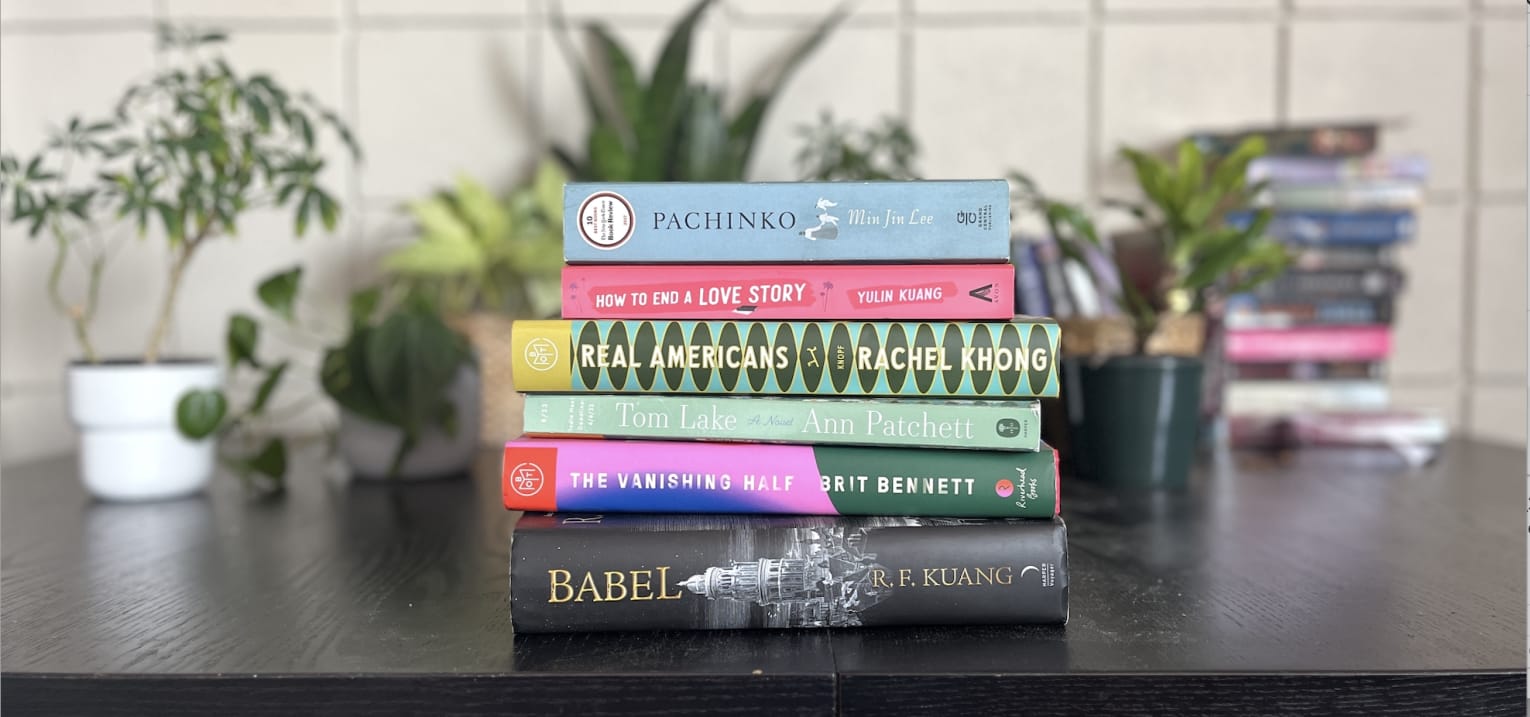Book Club Best: A Comprehensive Guide to Choosing the Perfect Read

Selecting the ideal book for your book club can feel like a daunting task. The perfect choice isn’t just a “good read”—it’s a catalyst for engaging discussions, sparking debate, and fostering deeper connections within your group. This comprehensive guide explores various factors to consider when choosing a book club selection, drawing upon insights from diverse sources and offering a curated list of potential titles across different genres and styles. Ultimately, the best book club book is one that resonates with your group’s interests and preferences, provoking lively conversation and shared experiences.
The Art of Selecting a Book Club Book

There’s no single formula for choosing the “best” book club book. Different groups have varying tastes and priorities. Some book clubs might focus on enriching their members’ literary knowledge by delving into classics or challenging contemporary works. Others might prioritize enjoyable escapism, opting for popular bestsellers or genre fiction. Still others might seek books with a strong social or political message, inviting deeper conversations on relevant issues.

The key, however, lies in selecting a book that encourages diverse opinions and sparks engaging discussions. The ideal book creates a platform for shared exploration of themes, characters, and writing styles. It is a book where disagreement can be as valuable as consensus, generating a rich tapestry of interpretations and perspectives. Disagreements are not to be avoided but welcomed as opportunities for insightful exchanges and intellectual growth. A book that leaves everyone feeling satisfied, even if they hold different opinions on its merits, is a hallmark of a successful book club selection.
Consider these factors when making your selection:
- Genre and Style: Diversify your selections across genres to keep things interesting. Mix fiction and non-fiction, exploring everything from historical novels to thought-provoking memoirs to contemporary thrillers. Consider the reading level of your group members and ensure the book is accessible while still stimulating.
- Length and Pace: While some book clubs embrace longer, more complex books, others prefer shorter, faster-paced reads. Consider the time commitment your members have available and the general preference of your group. Avoid books that are excessively long or overly dense to ensure everyone can keep up.
- Themes and Topics: Select books that align with your group’s interests. If your group is passionate about social justice issues, choose a book exploring relevant themes. If they enjoy historical fiction, explore options that transport the reader to other times and places. Consider choosing titles that provoke reflection on current events or social structures.
- Accessibility and Inclusivity: Ensure your chosen book is accessible to all members in terms of language, themes, and content. Avoid books with potentially triggering or offensive content without prior discussion and consent within your group. Be mindful of the potential for diverse interpretations and allow space for varied perspectives.
The Role of Book Reviews and Discussion Guides
Utilizing book reviews and discussion guides can greatly aid in your selection process. Reviews provide concise summaries and critiques, highlighting a book’s strengths and weaknesses, while discussion guides can streamline post-reading conversations. These guides generally provide a range of questions to kickstart discussions, prompting varied viewpoints and ensuring balanced participation amongst group members.
Curated Book Club Recommendations
The following curated list presents a diverse range of books suitable for book clubs, categorized for easier navigation. This is not an exhaustive list but rather a starting point to stimulate ideas and broaden your group’s selection scope.
Note: The inclusion of a book on this list does not necessarily imply an endorsement of all aspects of its content, rather it indicates potential suitability based on its ability to inspire lively discussion within a book club setting.
Feel-Good Fiction:
- “Really Good, Actually” by Monica Heisey: A relatable and funny exploration of divorce and self-discovery.
- “Malibu Rising” by Taylor Jenkins Reid: A captivating story of four famous siblings and their intertwined lives.
- “The Flatshare” by Beth O’Leary: A unique and charming romance with an unconventional premise.
- “Daisy Jones and The Six” by Taylor Jenkins Reid: A fictionalized account of a 1970s rock band, told through interviews.
- “Ghosts” by Dolly Alderton: A poignant and witty exploration of modern life and relationships.
- “Happy Place” by Emily Henry: A feel-good romance with elements of humor and self-reflection.
- “The Hidden Beach” by Karen Swan: A tale of forgiveness and second chances against a scenic Swedish backdrop.
- “The Sight Of You” by Holly Miller: A heartwarming story about love and loss with surprising twists.
- “The Authenticity Project” by Clare Pooley: A heartwarming story of self-discovery and connection.
- “Saving Missy” by Beth Morrey: A story of friendship, second chances, and aging gracefully.
Gripping Thrillers:
- “Everything I Never Told You” by Celeste Ng: A heartbreaking and suspenseful family drama with racial undertones.
- “Magpie” by Elizabeth Day: A psychological thriller exploring themes of obsession, secrets, and deception.
- “The Survivors” by Jane Harper: A brooding mystery set against the atmospheric backdrop of the Tasmanian coast.
- “Kim Stone series” by Angela Marsons: A crime series featuring a compelling female detective and her team.
- “What You Did” by Claire McGowan: A tense and twisty thriller exploring themes of friendship and betrayal.
- “The Perfect Wife” by JP Delaney: A suspenseful novel exploring themes of memory, identity, and technology.
- “Liar” by Lesley Pearse: A dark and thrilling mystery set in 1970s London.
- “The Curator” by M. W. Craven: A disturbing and intense crime novel with unexpected twists.
- “The New Girl” by Harriet Walker: A gripping thriller set in the glamorous and cutthroat world of fashion.
- “The Prisoner” by BA Paris: A chilling suspense novel with alternating timelines that explore trauma and resilience.
- “Lullaby” by Leila Slimani: A disturbing and suspenseful novel exploring themes of family, class, and societal pressures.
- “Death of a Bookseller” by Alice Slater: A dark and suspenseful thriller revolving around coworkers and secrets.
- “The Fall” by Gilly Macmillan: A psychological thriller exploring relationships, secrets, and loss.
- “Truly, Darkly, Deeply” by Victoria Selman: A psychological thriller revolving around murder and obsession.
Thought-Provoking Literary Fiction:
- “My Dark Vanessa” by Kate Elizabeth Russell: A controversial yet thought-provoking novel exploring themes of power, abuse, and memory.
- “An American Marriage” by Tayari Jones: A powerful novel exploring themes of race, injustice, and marital relationships.
- “Blue Ticket” by Sophie Mackintosh: A dystopian novel exploring themes of motherhood and societal expectations of women.
- “Sorrow And Bliss” by Meg Mason: A poignant and humorous novel about mental illness and family relationships.
- “The Paper Palace” by Miranda Cowley Heller: A captivating story of secrets, choices, and lasting impacts.
- “Where the Crawdads Sing” by Delia Owens: A captivating coming-of-age story with a mystery at its core.
- “Cloud Cuckoo Land” by Anthony Doerr: A multi-generational story exploring themes of hope, storytelling, and human connection.
- “We All Want Impossible Things” by Catherine Newman: A heartwarming and humorous novel exploring themes of friendship and loss.
- “Signal Fires” by Dani Shapiro: A compelling novel exploring the impact of tragedy and human interconnectedness.
- “Demon Copperhead” by Barbara Kingsolver: A powerful novel addressing the opioid crisis and social inequality.
- “Someone Else’s Shoes” by JoJo Moyes: A heartwarming novel exploring empathy and second chances.
- “Luster” by Raven Leilani: A complex and raw novel exploring themes of race, relationships, and identity.
- “The Tenth Muse” by Catherine Chung: A captivating novel exploring family history, identity, and mathematical brilliance.
- “The Midnight Library” by Matt Haig: A thought-provoking novel exploring the concept of alternate lives and self-acceptance.
- “The Vanishing Half” by Brit Bennett: A compelling novel exploring race, identity, and family secrets.
- “The Confession” by Jessie Burton: A captivating novel exploring self-discovery, secrets, and relationships.
- “Do Not Feed The Bear” by Rachel Elliot: A poignant novel about grief, healing, and finding hope.
- “Romantic Comedy” by Curtis Sittenfeld: A witty and insightful novel exploring the complexities of relationships in the entertainment industry.
Engaging Historical Fiction:
- “Ariadne” by Jennifer Saint: A retelling of the myth of Theseus and the Minotaur from Ariadne’s perspective.
- “Spirited” by Julie Cohen: A captivating novel blending historical fiction with supernatural elements.
- “A Long Petal of the Sea” by Isabel Allende: An epic tale of refugees fleeing Franco’s Spain.
- “This Lovely City” by Louise Hare: A mystery set in post-war London exploring themes of race and social inequality.
- “The Silent Hours” by Cesca Major: A moving and historically accurate story set in wartime France.
- “Small Pleasures” by Clare Chambers: A captivating novel set in 1950s post-war London, exploring themes of family and mystery.
- “The Garden Of Lost And Found” by Harriet Evans: A multi-generational story weaving together themes of family, loss, and mystery.
Memoirs and Non-Fiction:
- “Wild: A Journey from Lost to Found” by Cheryl Strayed: A memoir about a transformative solo hike.
- “The Crane Wife” by CJ Hauser: A memoir in essays exploring themes of relationships and self-discovery.
- “Untamed” by Glennon Doyle: A memoir encouraging readers to live authentically and defy expectations.
- “The Salt Path” by Raynor Winn: A memoir about a couple’s journey along the South West Coast Path.
- “Three Women” by Lisa Taddeo: A non-fiction work exploring the complex experiences of women and sex.
Remember, the most important factor is choosing a book that your book club will genuinely enjoy and find engaging. Use this guide as a springboard for your discussions, and remember that the best book club experiences come from shared enthusiasm and thoughtful conversations.